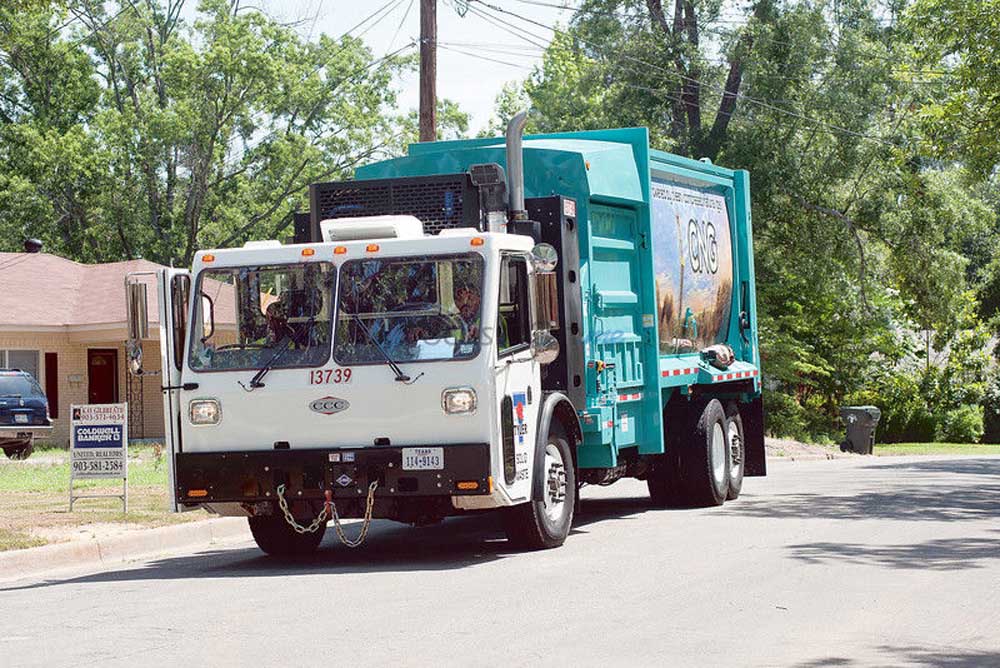East Texas Genealogical Society project helps Black families connect with ancestry
Published 5:45 am Thursday, February 20, 2025

- The 1870 census is the first to list formerly enslaved individuals by name, rather than just characteristics like gender and age (Katecey Harrell/ Tyler Morning Telegraph).
Editor’s Note: Tyler Morning Telegraph reporters spoke to several community members to cultivate ideas that could help us tell unique stories to celebrate Black History Month. Our team thanks those community sources for the productive, insightful conversations which led to this interesting feature.
Lost records and fragmented histories have made it difficult for Black Americans to trace their roots. An East Texas Genealogical Society project is working to fill in those gaps, helping families reconnect with their past.
Trending
“The 1870 census is so important … to anybody who’s ever had an ancestor in East Texas,” said Michele Bailey, East Texas Genealogical Society president. “But it’s especially important to the African American community, because that’s the first census after emancipation.”
Volunteers of the 1870 census project are taking every name on the census record and adding an identifier number to FamilySearch. It’s the first census where anyone who was formerly enslaved shows up with their name rather than just characteristics like gender and age.
Researchers trace the family histories using historical records like Slave Schedules, probate documents and tax records, then group individuals by household to reconstruct family units.
FamilySearch is the world’s largest free genealogy resource. It is operated by the Church of Jesus Christ of Latter-day Saints. The local FamilySearch Center is open from 10 to 12 p.m. and 4 to 6 p.m. every Tuesday and Thursday at 1617 Shiloh Road in Tyler.
During those hours volunteer genealogists work on site to help people with research. Once people have created a login, many people use the centers resources remotely, but others value face-to-face contact and group support.
Tyler native Dorinda Williams started her genealogy journey in the 1980s, and she’s been coming to the center since about 2014.
Trending
She described attending a meeting at the East Texas Genealogical Society event, where someone asked for a name. She provided her great-great-grandfather’s name, but initially, there were no results. After correcting the spelling, the records appeared.
Despite researching since 1987, she had never seen those records before. “It was amazing. I said, ‘Oh, my God.'”
“It’s not a quick journey,” she said. Burnout happens — hitting a roadblock can be frustrating and make people want to give up. But stepping away for a while can help clear the mind. Taking a break for a month or even six can bring back motivation.
“Once you find something you’ve been searching for and all of a sudden it appears,” Williams said. “It’s really addictive, but yet it’s a joy. It’s a pleasure doing it.”
Williams then started attending the East Texas Genealogical Society’s African American Special Interest Research Group, which meets from 6 to 8 p.m. every fourth Monday.
Newcomers sit in on the group’s lesson on Black history research before using the computers to start on their family trees. Any information like birth certificates, family Bibles, obituaries, death or marriage certificates, military pictures and handwritten letters can be useful in the process.
The group has had as few as two or as many as 15 attend in person, with around six joining online for training. Not everyone stays or wants to participate. Some just observe the process before leaving to work on their own.
“We show them how to load all that information into the system and start building the tree,” Williams said. “There is nothing like being face to face. You build a relationship when you’re face to face and you’re able to feel more comfortable collaborating with each other.”
At first, Williams said she was hesitant about coming in because she wasn’t sure how the people at the center would receive her or how comfortable she would feel in that environment. But Bailey was there, welcoming Williams with a big smile and making her feel right at home.
“Get it done now rather than later,” Williams said. “It’s good to know who you are and where you come from, so you can understand the next step and where you might go in life.”
On one side of her family, they were all teachers. On the other side, there were farmers and landowners. They owned property and houses. Williams said some of them couldn’t even read, but they still accomplished a lot. It helps her see what she’s capable of achieving.
“You have four grandparents, then eight great-grandparents and it keeps going — 16, 32. It just shows how many cousins you have that you don’t even know,” Bailey said. “When they are here for the first time, they start to load their tree with names and find information … Somebody else might be doing the same thing.”
The East Texas Genealogical Society serves six counties in the region, including Anderson, Gregg, Henderson, Panola, Rusk and Smith. The society educates members and the public on topics that are relevant and timely. Whether a person’s ancestors are in East Texas or elsewhere, the group says it helps develop the skillset to search out those family members.
The East Texas Genealogical Society holds monthly meetings at 2 p.m. on the second Saturday of each month in-person at the Tyler Public Library – Taylor Auditorium, 201 S. College Ave. The meetings are also available virtually.
According to the group’s website, each meeting has a local expert or speaker who provides opportunities for the members and the community to learn how to better research and locate their family. There are also special interest groups that meet to cover topics such as DNA, African American research, and computer technology.
For more information, visit etgs.org or join the organization’s Facebook group at www.facebook.com/groups/ETxGS .






